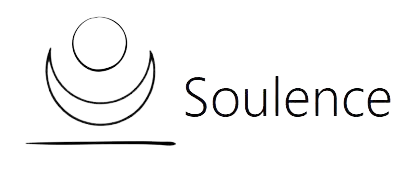Years after her passing, Mary Oliver’s voice and masterful art of being still speak to me in new ways. In her poem Wild Geese, she opens with this line, offering a doorway to self-love, grief, and the invitation to be fully part of this life.
I’ve been sitting with this line for awhile now, because the wild geese in the winter skies above me are heralds of the daily reminder, which awakens something in my heart. These are reasons to pay attention.
What I have realized is that being good is one of my most deeply rooted attachments. I think of attachments as anything we cling to that stands in the way of claiming our wholeness, the truth of who we are. They block us from being able to simply be present to what is, because they are dictating what has to be.
Being good always seems to be a lingering goal. When I don’t feel like I’m a good mom, it haunts me. But who’s to say if I’m a good mom? Pause for a moment and consider all of the ways you try to be good…
If I’m trying to be good, I’m striving. Striving is a red flag on the soul level. When I’m striving, I’m reaching for something outside of myself. Even if I receive affirmation, it’s temporary, and I’ll keep striving for more affirmation when the feeling of satisfaction dissolves. There’s no true contentment of being. There are loads of messages from our cultural conditioning, religious communities, and social networks that tell us what it means to be good. Once I’m off and running, chasing after those end points, I have left myself. In that way, being good becomes an attachment - something I feel I must be able to claim - which keeps me from being present and responding from the truth of who I am.
The systems we live in count on this vicious cycle. Capitalism needs me to need something outside of myself to prove I’m relevant. White Supremacy needs me to subscribe to an illusion of purity and goodness. Patriarchy demands that my goodness as a woman is defined by what I do for others. These are all lies.
My cultural conditioning looks different than that of others, based on my particular social location, but we all have it. Fill in the blank: Am I _________ enough? Underneath it is an attachment to being good enough for someone or something. Creation was good before the question “Am I good enough?” existed. The separation from our soul consciousness is what drives the need to prove ourselves worthy - through relationships, possessions, and status. This is actually causing harm, because we are not operating from our truest selves, claiming our wholeness, and committed to simply being present.
How did Mary Oliver know that we don’t have to be good? Perhaps it was a hard-earned lesson from her life own life experience. Perhaps it was wisdom that came from paying attention in the natural world; seeing those flocks of wild geese just being who they were, never in conflict with the “I Am” state of presence. Personally, I think she practiced it. She allowed herself to be still enough for a deeper voice to emerge. It was the truth that set her free and informed her work. She was a great poet because of what emerged from her soul, because she was learning what she had come here to learn.
Releasing attachments is deep work and some of the most important spiritual work we will do. It takes trust to let go and know that what needs to emerge will emerge. But I have experienced this over and over again. The times I let go are the times when what I truly need comes to me. It’s how I knew to write this.
Wild Geese
You do not have to be good.
You do not have to walk on your knees
For a hundred miles through the desert, repenting.
You only have to let the soft animal of your body
love what it loves.
Tell me about despair, yours, and I will tell you mine.
Meanwhile the world goes on.
Meanwhile the sun and the clear pebbles of the rain
are moving across the landscapes,
over the prairies and the deep trees,
the mountains and the rivers.
Meanwhile the wild geese, high in the clean blue air,
are heading home again.
Whoever you are, no matter how lonely,
the world offers itself to your imagination,
calls to you like the wild geese, harsh and exciting —
over and over announcing your place
in the family of things.
– Mary Oliver

